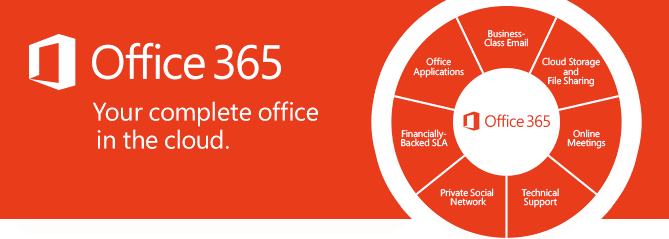With more and more businesses moving into Office 365, data security is becoming a little neglected. While convenience helps productivity, it can also hurt security. Essentially, Office 365 is a user’s mobile server that can be accessed from any device with internet. This has inevitably led to entirely new levels of security concern. Here are some easy-to-implement tools your business can employ to safeguard data.
Policy Alerts: Establishing policy notifications in Office 365 can help you meet your company’s data security obligations. These warnings can prevent data leaks and also educate users on safer data sharing practices. This feature can be set up through the Admin Security and Compliance portal.
Secure Mobile Devices: Since personal smartphones are often used to access work email, calendar, contacts, and documents, securing them should be a critical part of protecting your organization’s data. Installing mobile device management features for Office 365 enables you to manage security policies and access permissions/restrictions, and remotely wipe sensitive data from mobile devices if they’re lost or stolen.
Multi-factor Authentication: Don’t rely on a single password to safeguard your Office 365 accounts. To reduce the risk of account hijacking, you must enable multi-factor authentication. This feature makes it difficult for hackers to access your account since they not only have to guess user passwords but also provide a second authentication factor like a short SMS code.
Session Timeouts: Sometimes employees forget to log out of their Office 365 accounts. Or they keep their computers and mobile devices unlocked. This could give unauthorized users unfettered access to company accounts, allowing them to steal sensitive data. By applying session timeouts to Office 365, email accounts, and internal networks, the system will automatically log users out after 10 minutes. This prevents hackers from opening company workstations and accessing private information.
Role-based Access Controls: Another Office 365 feature that will limit the flow of sensitive data across your company is access management. This feature lets you determine which user (or users) have access to specific files in your company. For example, front-of-house staff won’t be able to read or edit executive-level documents, minimizing data leaks.
Encrypt Emails: Encrypting classified information is your last line of defense to secure your data. If hackers intercept your emails, encryption tools will make files unreadable to unauthorized recipients. This feature is a must-have for Office 365, where files and emails are shared on a regular basis.
While Office 365 offers the ability to share data and collaborate, you must always be aware of potential data security risks. If you follow these steps, it will significantly help to safeguard data. The best practice is always to educate users on the risks that are at stake if something were to happen. If you would like help with any of these tasks or explaining the risks associated with data security, feel free to reach out to Birds on a Cable.

